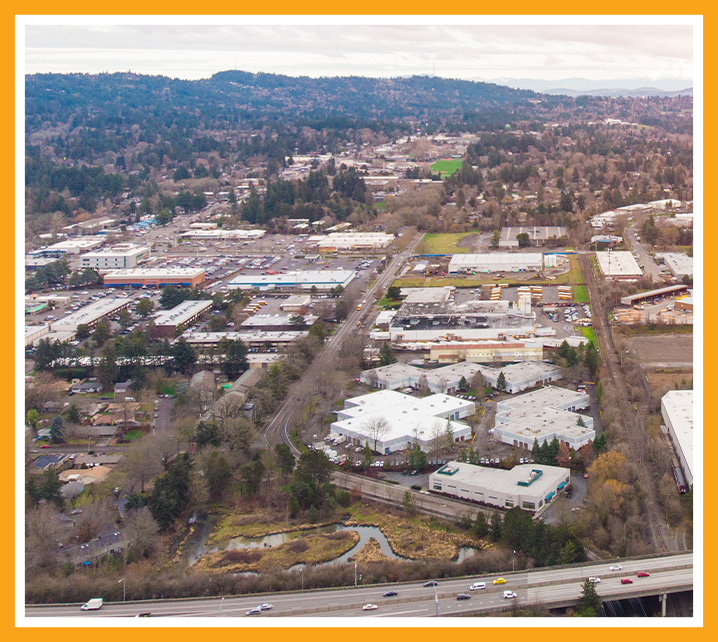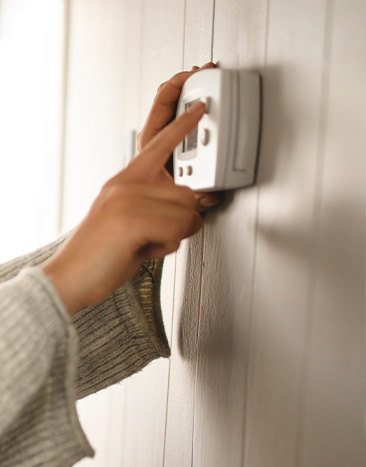
HVAC Company in Tigard, OR
Your Trusted Partner for Comprehensive HVAC Solutions
At Oregon Heating & Air Conditioning, LLC, we're your trusted HVAC company in Tigard and the surrounding areas. Our commitment to your comfort is demonstrated through our full range of residential and light commercial HVAC solutions. From routine maintenance and repairs to complex installations, we're here to ensure your systems operate efficiently all year round. Licensed, bonded, and insured, we pride ourselves on delivering quality and professionalism in every project.
One of the key aspects of our service is our ability to adapt to your specific HVAC needs. Whether you are dealing with an aging system that needs replacement or optimizing a newly installed unit for peak performance, our team brings years of experience and an innovative approach. By staying up to date with the latest HVAC technologies and practices, we provide HVAC solutions that are not only effective but also sustainable.
Experience superior comfort with a leading HVAC company. Contact us at (971) 444-6310 or fill out our online form and get a free estimate.

Frequently Asked Questions
How Often Should HVAC Systems Be Serviced?
Routine maintenance is essential for optimal performance and the lifespan of HVAC systems. We recommend scheduling service check-ups at least twice a year, ideally before the summer and winter seasons, to ensure your systems are prepared for more intense use. Regular maintenance can identify minor issues before they become major problems, ultimately saving you from costly repairs and extending the life of your equipment.
How Does Tigard's Climate Specifically Impact My HVAC System's Performance and Maintenance Needs?
Tigard's climate, characterized by warm, relatively dry summers and cool, often damp and rainy winters, places distinct demands on HVAC systems, influencing their performance and maintenance needs. During the summer, AC units work harder to combat the heat, leading to increased wear on components and the potential for pollen and dust to clog outdoor condenser coils. The higher demand for cooling also increases the risk of refrigerant issues if the system isn't optimally charged. In winter, furnaces contend with consistent cold and dampness, which can exacerbate issues like dirty burners or clogged filters due to increased use. Furthermore, the constant transition between heating and cooling seasons means that both parts of your HVAC system are actively used throughout much of the year, underscoring the need for twice-yearly preventative maintenance to ensure they can efficiently handle these varied climatic stresses without premature breakdown.
Can Regular HVAC Service Help Reduce My Energy Bills?
Yes, regular HVAC service is highly effective in reducing your energy bills. Over time, components like air filters, coils, and fans can accumulate dirt and debris, forcing your system to work harder and consume more energy to achieve the desired temperature. During a professional tune-up, technicians clean these vital parts, lubricate moving components, and ensure all settings are properly calibrated. This optimizes the system's efficiency, allowing it to heat and cool your home more effectively with less energy consumption, which can contribute to noticeably lower monthly utility costs over time.
How Long Does a Typical HVAC Repair or Installation Take?
The duration of HVAC services varies significantly depending on the job's complexity. A typical HVAC repair, addressing issues like a faulty thermostat, clogged drain line, or minor electrical problem, might take anywhere from 30 minutes to a few hours. However, more extensive repairs, such as fixing a significant refrigerant leak or replacing a major component like a compressor, could take a full day or longer if specialized parts need to be ordered. For installations, a straightforward replacement of an existing furnace or AC unit can often be completed within 4 to 8 hours. A full system replacement, which might involve new ductwork or conversions between fuel types, is a more comprehensive project that could take 1 to 3 days, sometimes even up to 5 days for highly complex setups.
How Do I Know If I Need a Repair or a Full HVAC System Replacement?
Deciding whether to repair or replace your HVAC system involves weighing several crucial factors, primarily its age, the frequency and cost of repairs, and its current energy efficiency. If your system is relatively new (typically under 10–15 years old for a furnace, 10 years for an AC) and the repair cost is minor (less than 50% of the cost of a new unit), a repair is usually the most economical choice. Conversely, if your HVAC unit is old, frequently breaking down, struggling to maintain comfortable temperatures despite repairs, or if your energy bills are consistently high due to its inefficiency, then a full replacement with a new, more energy-efficient model is generally the wiser long-term investment. Safety concerns, such as a cracked heat exchanger in a furnace, are also clear reasons to replace rather than repair.
How Do You Ensure Energy Efficiency in HVAC Systems?
We prioritize energy-efficient HVAC solutions by constantly updating our knowledge on modern HVAC technologies and integrating them into our services. This includes recommending systems with high energy ratings and offering maintenance services that enhance system efficiency and longevity. Moreover, we provide clients with tips and best practices to maintain efficiency, including the importance of regularly replacing filters and optimizing thermostat settings. We also offer comprehensive maintenance plans to keep your HVAC system in top shape year-round.
Work with your local team of experts!
-
Quality Materials & Craftsmanship
-
Over 20 Years of Experience
-
Punctual & Responsive
-
Customer Care Focused
Oregon Heating & Air Conditioning, LLC's Blog
- How to Maintain Your HVAC System in Winter
- The Importance of Timely Furnace Repair

